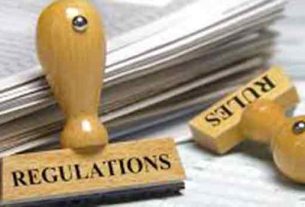After two and a half years since it was passed in Netherland’s House of Representatives, the awaited Remote Gaming has finally been passed by the Dutch Senate thus paving the way for the roll-out of online gambling legislation in the country. The new legislation is aimed at addressing concerns with regards to the unregulated gaming market and to ensure this is it will be integrated into law through a Royal Decree.
That said, the Netherlands can now refocus its efforts towards re-organizing its online gambling market so as to make it suitable for the international gaming operators that are interested in the country’s gaming market. As it stands, there are about 300 hundred companies that have expressed interest in offering their online gaming services to Dutch gamblers. While no details have been released on the specific dates when the country’s regulatory regime will finally kick off, it is speculated that this is likely to happen in early 2021, with the licensing process set to kick off as soon as mid next year.
What Was
Even though the Netherlands had some pretty tough rules and regulations governing its gambling industry, recent studies have revealed that for a very long time the country has been a huge market for online gaming operators that have been licensed overseas. In fact, these overseas online gambling sites were found to be among the most popular ones for Dutch customers which is quite a big deal especially considering the number of gamblers that exist in the country – it is estimated that between 2016 and 2018, over 1.86 million Dutch nationals participated in gambling or betting activities which is a significant increase from the previous years.
Kansspelautoriteit, the country’s gaming regulator has tried its best to curb the menace of unregulated online gambling in the Netherlands but existing regulations did not give the organization enough power and it was therefore not able to effectively monitor and regulate the online gambling space. The best that the regulator has been able to do is to issue out hefty fines to violators of gaming laws in the country – it is so powerless that it was even unable to collect the actual fines.
Player Protection
During the discussion that ended with the approval of the bill, a blackout period for companies that had already been servicing the country’s gaming market was also discussed. One of the lawmakers suggested a two-year cooling down period, a proposal that was supported by most tie Senate members. As such, the companies that have previously been found to have violated the country’s gaming rules will have to wait two whole years before they are allowed to reapply for online gaming licenses with the gambling regulator.
The new gaming law also seeks to force operators to adopt and integrate necessary tools and policies designed to gambling-related harm. One of the key considerations, in this case, is self-exclusion schemes – all of the licensed operators will have to register with a centralized self-exclusion program to ensure that they do not offer their services to problem gamblers or gambling addicts.



